Mosquitoes farmed, in fact
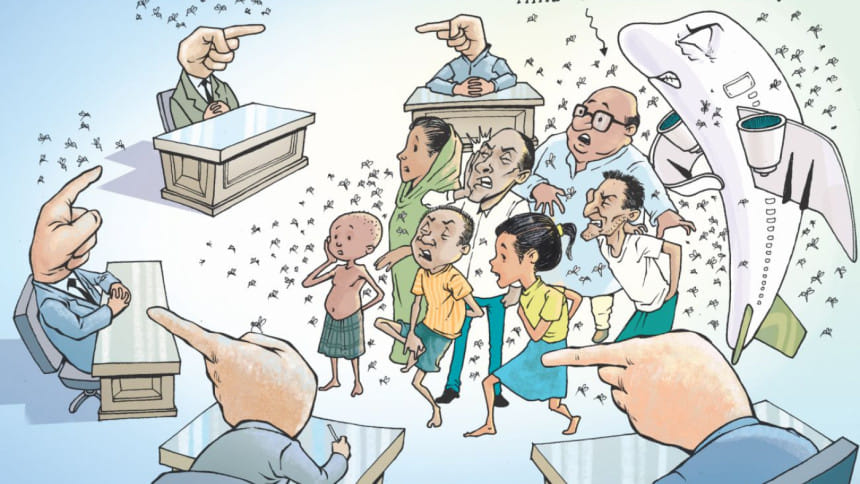

Mosquitoes have developed no new “hyper-reproductive capacity” but they are being farmed in Dhaka.
When Dhaka-dwellers are finding it hard to cope with the growing mosquito menace, eleven organisations have been found helping the insect population to rise by the millions every day.
The organisations, including north and south city corporations, have around 50 canals, 12 lakes, 23 ponds, and other water-bodies spanning over no less than 4,000 bighas.
During an investigation, The Daily Star found nine organisations, which do not spend a single taka and two others which spend only a meagre amount, to clean the vast swatch of stagnant water-bodies in and around the capital, considered ideal conditions for mosquitoes to breed.
The primary responsibility of controlling the mosquito population lies with both the city corporations. However, the only step they are seen taking is occasional spraying of insecticide around city households and into a few drains and water bodies.
Despite the Chikungunya outbreak last year, none of the organisations, city corporations apart, cared to clean the stagnant water bodies.
When queried on their failure to maintain the water bodies, the identical answer is: It's the job of the city corporations.
In the last five years, both the corporations have spent around Tk 150 crore on mosquito control but those could not give any relief to Dhaka dwellers.
This year, Dhaka South City Corporation (DSCC) kept aside Tk 30 lakh, out of Tk 25.6 crore, for its mosquito control programme.
Dhaka North City Corporation (DNCC), on the other hand, set aside Tk one crore out of 20 crore for the same reason.
“The fume of fogger machines destroys a portion of mosquitoes but their breeding grounds remain untouched. If these are not cleaned regularly, mosquito breeding will be unstoppable,” said a councillor of DNCC preferring to be unnamed.
A DSCC official claimed that the make-up of the insecticide is tested in three different places to ensure they are not harmful for people.
THE BREEDING GROUNDS
The Daily Star correspondents recently visited different canals around the city such as the ones in Manda, Jirani, Sangbadik Colony, Baishtaki, Ramchandrapur and Hazaribagh. There, they found the water stagnant due to accumulated garbage.
Mosquitoes were found breeding under the nose of DSCC officials in almost dried lakes at Osmani Udyan where renovation work is going on.
Most of the ponds under private ownership were found to be well managed, but there were exceptions also.
The pond at Tulabagicha is covered with hyacinths and small plants due to several years of negligence.
Md Sayed, owner of Tulabagicha pond at ward 54 of DSCC, said he does not clean the pond because he wants to fill it up.
Elsewhere, locals of Kalsi in Mirpur said the condition of Sangabadik Colony Khal was so bad that it was possible for a small boy to walk over the canal.
Since the last rainy season, the Shangbadik Colony Khal has not been cleaned, they said.
FAILURE EVERYWHERE
Due to the combined failure, citizens can find no respite from mosquitoes be it in an airport, hospital, open space, slum or a bedroom on the 10th floor of a building.
Wasa received an allocation of around Tk 5.5 crore from the government to clean its canals and storm sewerage drain this fiscal year, but it was yet to begin any initiative this year. This has increased culex mosquito populations, which serve as vectors for various diseases.
Talking to The Daily Star, Wasa Managing Director Taqsem A Khan blamed the city corporations for the spread of mosquitoes.
“If the DSCC was able to do 100 percent garbage management then cleaning canals and drains would not be necessary,” said Taqsem, adding that they would start their canal and storm water drain cleaning activities from mid March or from April.
Rajuk Chairman Abdur Rahman also said it was the DSCC's task to maintain and clean the canals.
When queried about the water accumulating at the renovation site in Gulshan and Banani lakes, he admitted that as the work is going on, it might contribute to the increase of mosquitoes in the areas.
“The death of Mayor Annisul Huq was a factor for the delay in beginning the anti-mosquito drive,” said Dewan Abdul Mannan, councillor of ward-11 of the DNCC.
WHAT IS BEING DONE?
“We've changed medicine (insecticide) and the result is good. Hope to be successful in controlling mosquitoes,” Dewan said. He added that if Wasa, Rajuk and the railway and water development board cleaned water bodies on a regular basis, the situation would not be so bad.
DNCC Chief Executive Officer Mesbahul Islam said the city corporation could not be held liable for the unclean water bodies of other organisations.
“We're trying our best to control mosquitoes,” he said, adding that they spread insecticides even in restricted places like the airport.
DSCC Mayor Mohammad Sayeed Khokon claimed that mosquito populations in most of the areas, except peripheral ones like Goran, Banasree and Jurain, were under control.
He said they had started two-week crash programmes for two weeks and are going to start massive awareness and cleanliness programmes shortly.
Mentioning that they have learnt from last year's horrific experience of Chikungunya outbreak, Khokon said they were giving high priority and were going to start a massive awareness campaign.
Responding to a question about failure of the early drives against mosquitoes, Khokon said normally they clean drains before the rainy season. He said 200 workers have been deployed to clean the drains.
“Condition of my old town residents is far better than my Banani residence which is under DNCC,” he said.
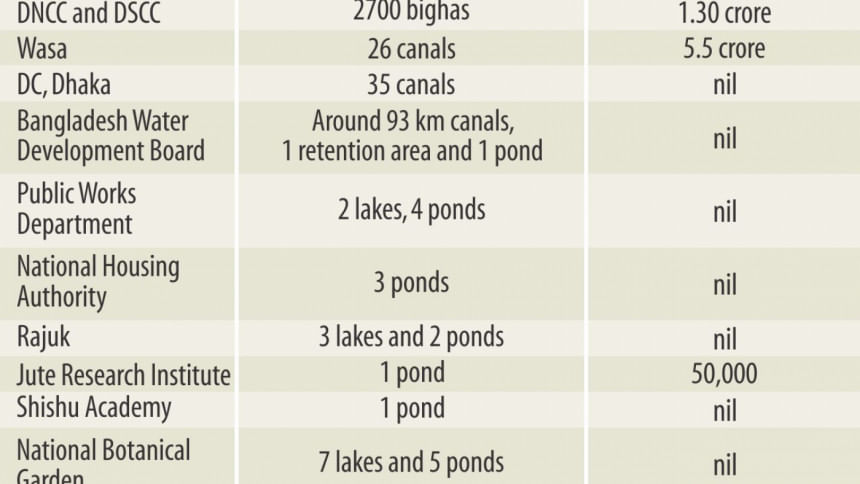
CHIKUNGUNYA SEASON IMMINENT
Whereas the city dwellers are reeling from the menace of culex mosquito, the fear of Chikungunya looms large.
Last year, the disease began to spread from late March.
According to the Institute of Epidemiology, Disease Control and Research (IEDCR), a total of 13, 814 people were contracted Chikungunya between April 7, 2017 and April 28, 2017. At least 584 persons suffered from dengue.
On the face of huge criticism, both the city corporations led huge drives to control mosquito population at the time. But the initiatives began to lose pace once the Chikungunya threat diminished at the end of the monsoon season.
To push the city authority into action, Director General of Health Service recently held a meeting with the city corporations' officials with a survey report prepared on January. The survey found 19 areas as vulnerable to Aedes mosquitoes.
The areas are Banani, Basundhara residential area, Gabtali, Maghbazar, part of Malibagh, Mirpur-1, Mohakhali, DOHS, Nakhapara, East Shewrapara, Tolarbagh, and Uttara sector-9 of the DNCC.
Under DSCC, the vulnerable areas are: Dhanmondi-1, Elephant Road, Gulbagh, Kalabagan, Meradia, Minto Road and Baily Road and Shantinagar.
About the identified areas, Khokon said these areas will get extra priority.
Meanwhile, DSCC Mayor released guppy fish, an invasive species, in a drain at Kazi Alauddin Road in a bid to control mosquito breeding.
DSCC plans to release a total of 10,000 guppies, said a DSCC official, adding that the corporation has taken initiative to clean its 450 km-long long drains to combat mosquitoes.

 For all latest news, follow The Daily Star's Google News channel.
For all latest news, follow The Daily Star's Google News channel. 

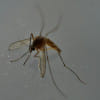

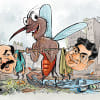
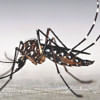
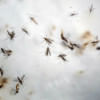


Comments